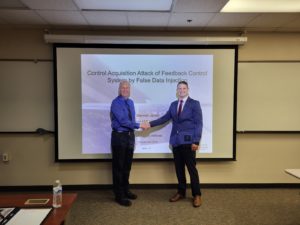Ph.D. student Garrett Jares and Dr. John Valasek of VSCL published the paper “Control Acquisition Attack of Aerospace Systems via False Data Injection,” in Journal of Aerospace Information Systems.
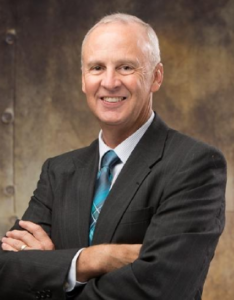
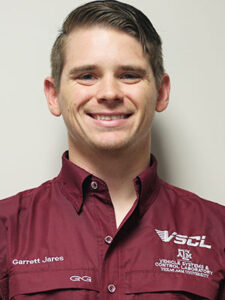
The cyber threat to aerospace systems has been growing rapidly in recent years with several real-world and experimental cyberattacks observed. This growing threat has prompted investigation of cyber-attack and defense strategies for manned and unmanned air systems, spacecraft, and other aerospace systems. The work in this paper seeks to further understand these attacks by introducing and developing a novel cyberattack for autonomous aerospace systems. The problem faced by the attacker is posed and discussed analytically using false data injection of state measurements to exploit the vehicle’s onboard controller to take control of the system. It is shown that the attacker can utilize traditional control techniques to exert control over the system and eliminate the control of the victim by intercepting and modifying the vehicle’s measurement data. The attacker is able to accomplish this objective without any prior knowledge of the system’s plant, controller, or reference signal. The attack is demonstrated on the elevator-to-pitch-attitude-angle dynamics of a Cessna T-37 aircraft model. It is shown to be successful in eliminating the victim’s control influence over the system and driving the system to its own target state.
This publication is part of VSCL’s ongoing work in the area of cybersecurity. The article can be viewed at https://arc.aiaa.org/doi/full/10.2514/1.I011199.

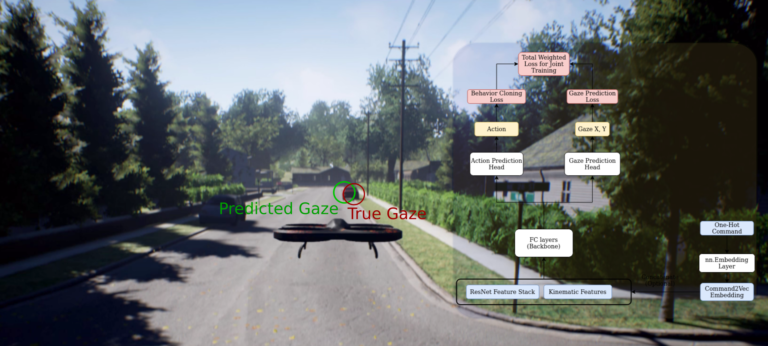

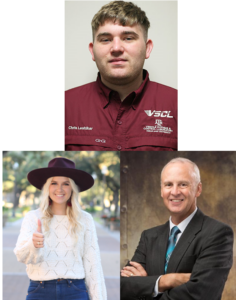 This paper presents a summary of system identification flight testing and results for a variety of large and small fixed-wing and multirotor Unmanned Air Systems at Texas A&M University from 1999-2023. The six different types of vehicles range from a large powered-parafoil, to a fixed-wing vehicle with synthetic jet actuated roll control effectors, to a radially asymmetric multirotor, to large and small fixed-wing vehicles, and a Steppe eagle. The Observer/Kalman Filter Identification algorithm is used to generate linear time invariant state-space models, and results for both near real-time online model generation, and post-flight offline model generation are presented. The use and efficacy of a variety of test input types and their sensitivity to exogenous inputs such as turbulence, in addition to identified model evaluation and selection criteria are discussed. Several generations of low size, weight, power, and cost flight test instrumentation including the Developmental Flight Test Instrumentation data acquisition package are also presented. Challenges that arose from the flight testing campaigns along with solutions are highlighted in the paper.
This paper presents a summary of system identification flight testing and results for a variety of large and small fixed-wing and multirotor Unmanned Air Systems at Texas A&M University from 1999-2023. The six different types of vehicles range from a large powered-parafoil, to a fixed-wing vehicle with synthetic jet actuated roll control effectors, to a radially asymmetric multirotor, to large and small fixed-wing vehicles, and a Steppe eagle. The Observer/Kalman Filter Identification algorithm is used to generate linear time invariant state-space models, and results for both near real-time online model generation, and post-flight offline model generation are presented. The use and efficacy of a variety of test input types and their sensitivity to exogenous inputs such as turbulence, in addition to identified model evaluation and selection criteria are discussed. Several generations of low size, weight, power, and cost flight test instrumentation including the Developmental Flight Test Instrumentation data acquisition package are also presented. Challenges that arose from the flight testing campaigns along with solutions are highlighted in the paper.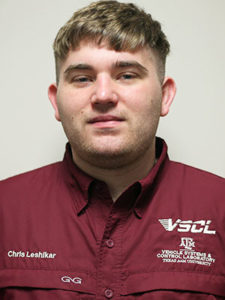 VSCL Graduate Research Assistant and Ph.D Student Chris Leshikar has been selected for a Summer 2023 internship with the
VSCL Graduate Research Assistant and Ph.D Student Chris Leshikar has been selected for a Summer 2023 internship with the 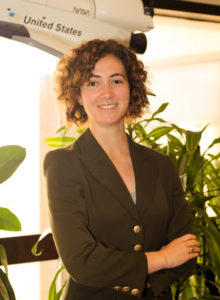 VSCL Graduate Research Assistant and Ph.D Student Hannah Lehman has been selected for a Summer 2023 research internship at
VSCL Graduate Research Assistant and Ph.D Student Hannah Lehman has been selected for a Summer 2023 research internship at 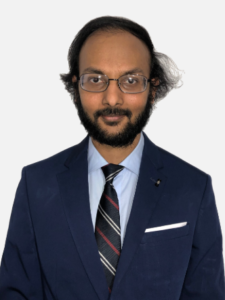 VSCL Graduate Research Assistant and MS student MD-Nazmus Sunbeam has been selected for a Summer 2023 internship with
VSCL Graduate Research Assistant and MS student MD-Nazmus Sunbeam has been selected for a Summer 2023 internship with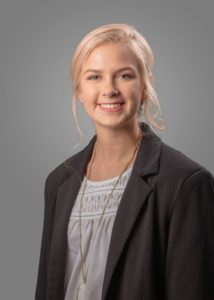 VSCL Graduate Research Assistant and MS Student Cassie-Kay McQuinn has been selected for a Summer 2023 research internship at the
VSCL Graduate Research Assistant and MS Student Cassie-Kay McQuinn has been selected for a Summer 2023 research internship at the 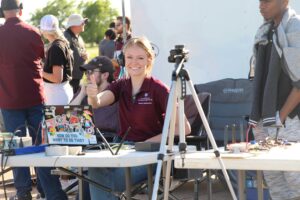 VSCL Graduate Research Assistant
VSCL Graduate Research Assistant 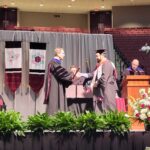
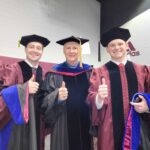
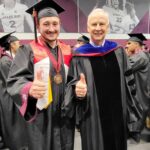
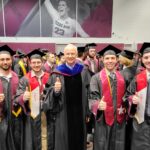
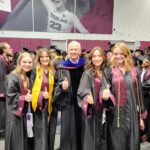
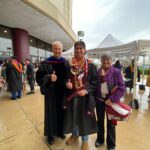
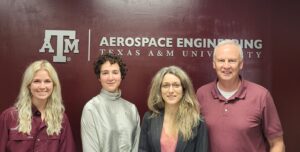 VSCL hosted Dr. Dimitra Panagou, Associate Professor with the
VSCL hosted Dr. Dimitra Panagou, Associate Professor with the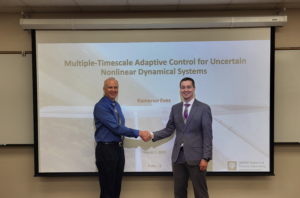 ) successfully defended his Ph.D. dissertation titled “Multiple-Timescale Adaptive Control for Uncertain Nonlinear Dynamical Systems”. Kameron’s dissertation investigated combining nonlinear multiple time-scale controllers that VSCL has been researching for the last 15 years, with adaptive controllers which VSCL has been researching for more than 20 years. Multiple-timescale control has been shown to have difficulty with uncertain systems and adaptive control has been shown to have difficulty with multiple-timescale systems. His dissertation describes a novel control methodology called [K]Control of Adaptive Multiple-timescale Systems (KAMS). KAMS seeks to address systems that simultaneously exhibit uncertain and multiple-timescale behaviors. Unlike traditional multiple-timescale control literature, KAMS uses adaptive control to stabilize the subsystems. The reference models and adapting parameters used in adaptive control significantly complicate the stability analysis. KAMS is a flexible theory and framework and the stability proofs apply to a wide array of adaptive algorithms and multiple-timescale fusion techniques. Additionally, formal and numerical validation of how KAMS can relax the minimum phase assumption for a multitude of common adaptive control methods. KAMS is demonstrated and evaluated on examples consisting of stabilization and attitude control of a quadrotor Unmanned Air System; fuel-efficient orbital transfer maneuvers; and preventing inlet unstart on hypersonic aircraft.
) successfully defended his Ph.D. dissertation titled “Multiple-Timescale Adaptive Control for Uncertain Nonlinear Dynamical Systems”. Kameron’s dissertation investigated combining nonlinear multiple time-scale controllers that VSCL has been researching for the last 15 years, with adaptive controllers which VSCL has been researching for more than 20 years. Multiple-timescale control has been shown to have difficulty with uncertain systems and adaptive control has been shown to have difficulty with multiple-timescale systems. His dissertation describes a novel control methodology called [K]Control of Adaptive Multiple-timescale Systems (KAMS). KAMS seeks to address systems that simultaneously exhibit uncertain and multiple-timescale behaviors. Unlike traditional multiple-timescale control literature, KAMS uses adaptive control to stabilize the subsystems. The reference models and adapting parameters used in adaptive control significantly complicate the stability analysis. KAMS is a flexible theory and framework and the stability proofs apply to a wide array of adaptive algorithms and multiple-timescale fusion techniques. Additionally, formal and numerical validation of how KAMS can relax the minimum phase assumption for a multitude of common adaptive control methods. KAMS is demonstrated and evaluated on examples consisting of stabilization and attitude control of a quadrotor Unmanned Air System; fuel-efficient orbital transfer maneuvers; and preventing inlet unstart on hypersonic aircraft.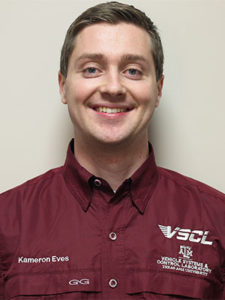 Kameron Eves will be presenting the paper “Adaptive Control for Non-minimum Phase Systems Via Time Scale Separation,”. Adaptive control for non-minimum phase systems remains a challenging problem. Eves proposes a method of adaptive control for systems that may be both nonlinear and non-minimum phase. This is accomplished by exploiting time scale separation between the internal and external dynamics.
Kameron Eves will be presenting the paper “Adaptive Control for Non-minimum Phase Systems Via Time Scale Separation,”. Adaptive control for non-minimum phase systems remains a challenging problem. Eves proposes a method of adaptive control for systems that may be both nonlinear and non-minimum phase. This is accomplished by exploiting time scale separation between the internal and external dynamics.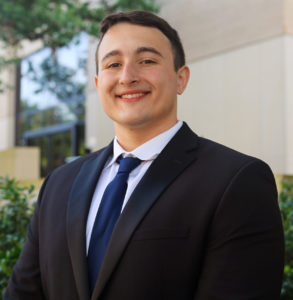
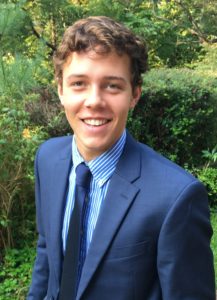 David Van Wijk will be presenting the paper “Deep Reinforcement Learning Controller for Autonomous Tracking of Evasive Ground Target”. Van Wijk presents a method of tracking an evasive ground target using deep RL on a rotorcraft wherein the target attempts to hide behind occlusions. A variety of environment conditions are trained and evaluated, resulting in an agent able to successfully track a randomly moving target with the presence of occlusions.
David Van Wijk will be presenting the paper “Deep Reinforcement Learning Controller for Autonomous Tracking of Evasive Ground Target”. Van Wijk presents a method of tracking an evasive ground target using deep RL on a rotorcraft wherein the target attempts to hide behind occlusions. A variety of environment conditions are trained and evaluated, resulting in an agent able to successfully track a randomly moving target with the presence of occlusions.